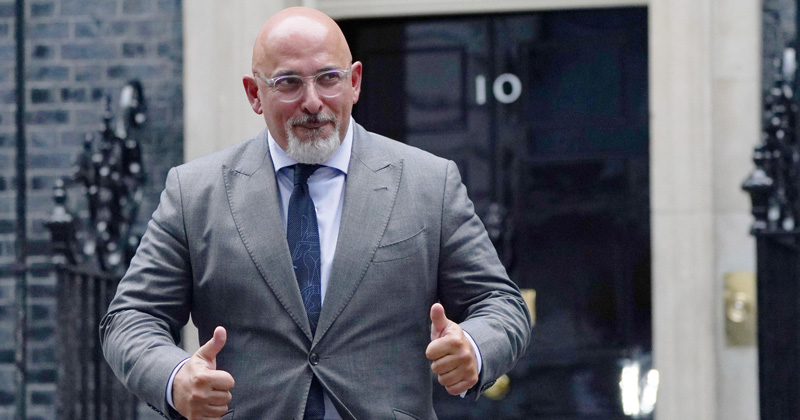The education secretary has pledged to bring forward a schools white paper in the new year outlining plans to “tackle innumeracy and illiteracy”.
Nadhim Zahawi delivered a keynote speech to the Conservative Party conference in Manchester this afternoon.
He spoke for less than nine minutes, and most of his pledges had already been announced.
But he said that the government’s ambition was “not simply to recover, but to build back better”.
“That is why I will bring forward a schools white paper in the new year, outlining plans to tackle innumeracy and illiteracy.
“We will relentlessly drive-up standards, building back a better and fairer school system. I will work tirelessly to spread opportunity and unleash the brilliance of the young people of this country.”
It comes after the Guardian reported that ministers were considering bringing back SATs at 14 and scrapping the directed time working hours cap for teachers, as well as beefing up Ofsted inspections, ahead of a white paper in 2022.
The rumoured proposals, in particular the threat to the working hours cap, have angered unions, with NEU joint general secretary Dr Mary Bousted warning yesterday it would “met with fury” in the profession.
Zahawi promised delegates today that he would “be led by evidence in the decisions that I take”, and “relentlessly focus on what works”.
“And we will irrevocably improve children’s future and the future of this country.”
The education secretary also pointed to existing pledges, including “up to six million packages of tutoring in schools this parliament”.
Zahawi also referred back to a pledge made in June to fund 500,000 “teacher training opportunities”.
He also reiterated the government’s commitment to the ITT review, saying its “fundamental overhaul” would “make this country the best in the world to train and learn as a teacher”.
















Since the start of the 21st century, politicians of all hues have vowed to tackle innumeracy and illiteracy. They’ve manufactured a bogus crisis in innumeracy and illiteracy to score political points. When politicians talk of numeracy and illiteracy, they actually mean not meeting a standard mandated by politicians (eg GCSE 4 and above in Maths and English). But young people unable to reach this standard are NOT innumerate or illiterate. They have reached a basic standard which means they can function in society. but it’s a useful political weapon to claim such young people can neither read, write or do basic sums.